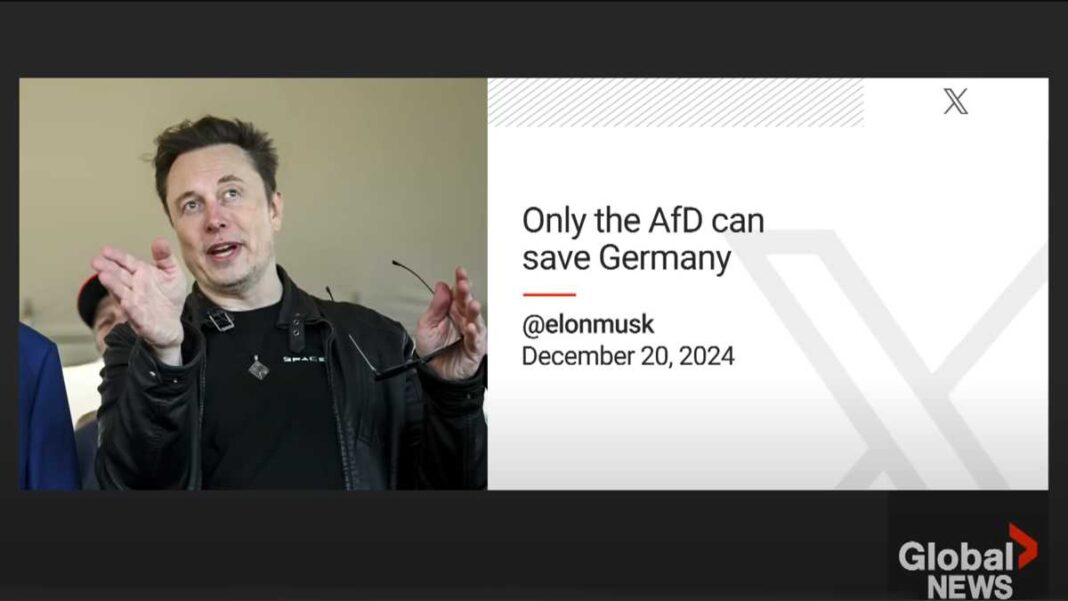The X owner sparked EU backlash as leaders invoked the Digital Services Act, which critics argue is used to police speech and stifle dissent.
Elon Musk’s plan to host Alice Weidel—the leader of Germany’s right-wing Alternative for Germany (AfD) party—in a live interview on his social media platform, X, on Jan. 9 has sparked calls from European Union leaders for the European Commission to intervene.
The interview will take place ahead of Germany’s national election on Feb. 23.
EU leaders have called for Brussels to intervene directly, saying it needs to enforce the Digital Services Act (DSA).
The DSA is an EU-wide 2022 regulation that requires social media platforms to remove and take other specified steps to deal with what is deemed “disinformation.”
In December 2024, Musk publicly endorsed the AfD, and on Dec. 28, the German paper Welt am Sonntag published a guest editorial by him headlined “Only the AfD Can Save Germany.”
In it, Musk criticized Germany’s energy policies as “geopolitically naive,” including the decision to phase out nuclear power while heavily relying on coal, imported gas, and intermittent renewable energy sources without adequate grid-scale batteries.
“Germany’s economy, once the powerhouse of Europe, is now mired in bureaucracy and stifling regulations,” Musk wrote.
He also claimed that Berlin’s mass migration policies had caused significant cultural and social tensions.
When pressed on the subject on Jan 8, the European Commission said that it was not waiting until Jan. 9 to take action.
A spokesman said the commission had opened formal proceedings in December 2024 to assess whether X may have breached the DSA.
“On this possible livestream, this may well become part of the ongoing inquiry into X. But we have to see first of all whether it takes place on Thursday and under what conditions,” he said.
France’s digital minister, Jean-Noël Barrot, on Jan. 8 urged the EU to get tough on Musk’s involvement in European politics.
“Either the European Commission applies with the greatest firmness the laws that exist to protect our unique space, or it does not, and in that case, it should think about giving the capacity to do so back to the member states of the European Union,” Barrot said.
By Owen Evans







